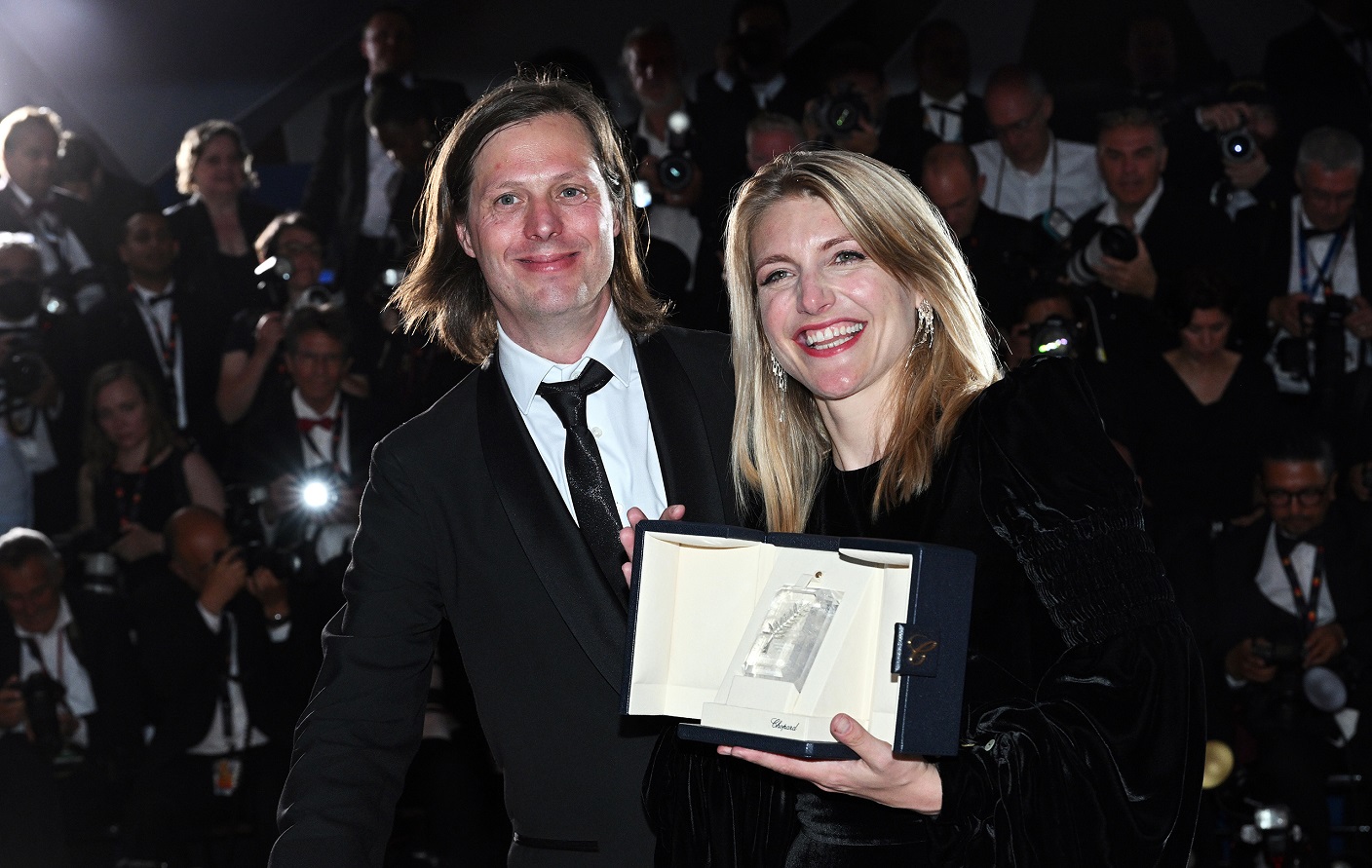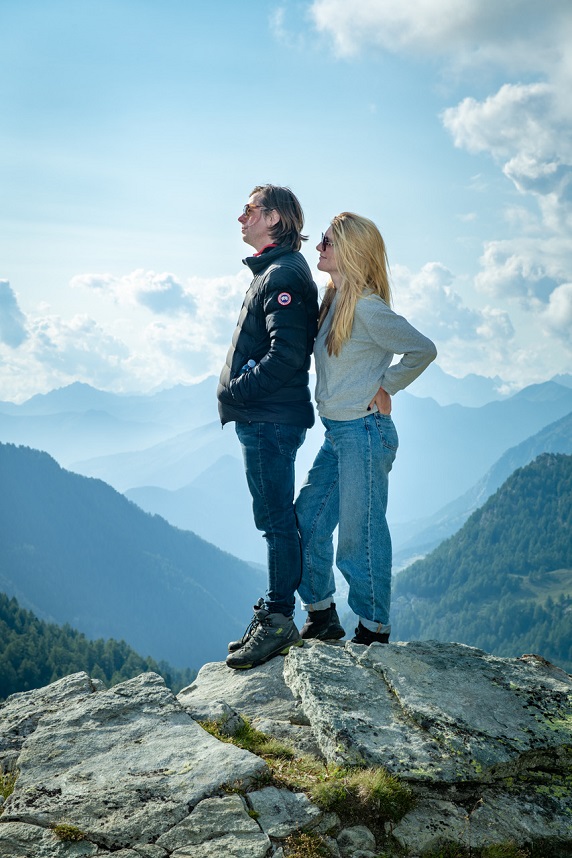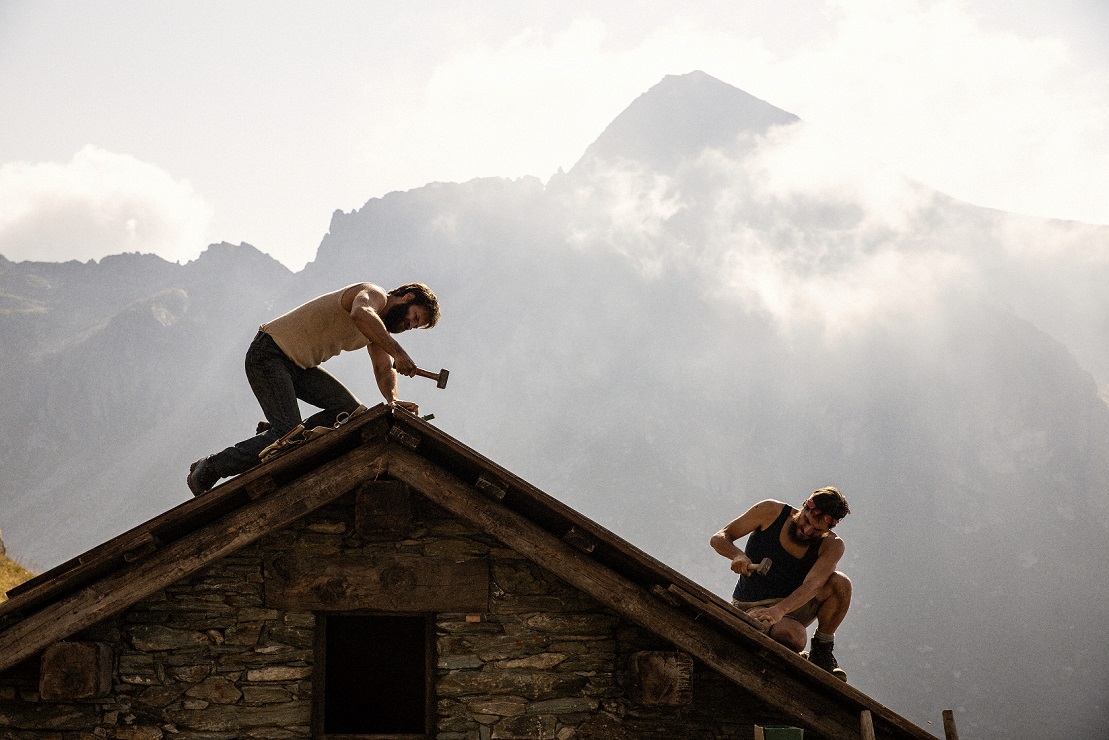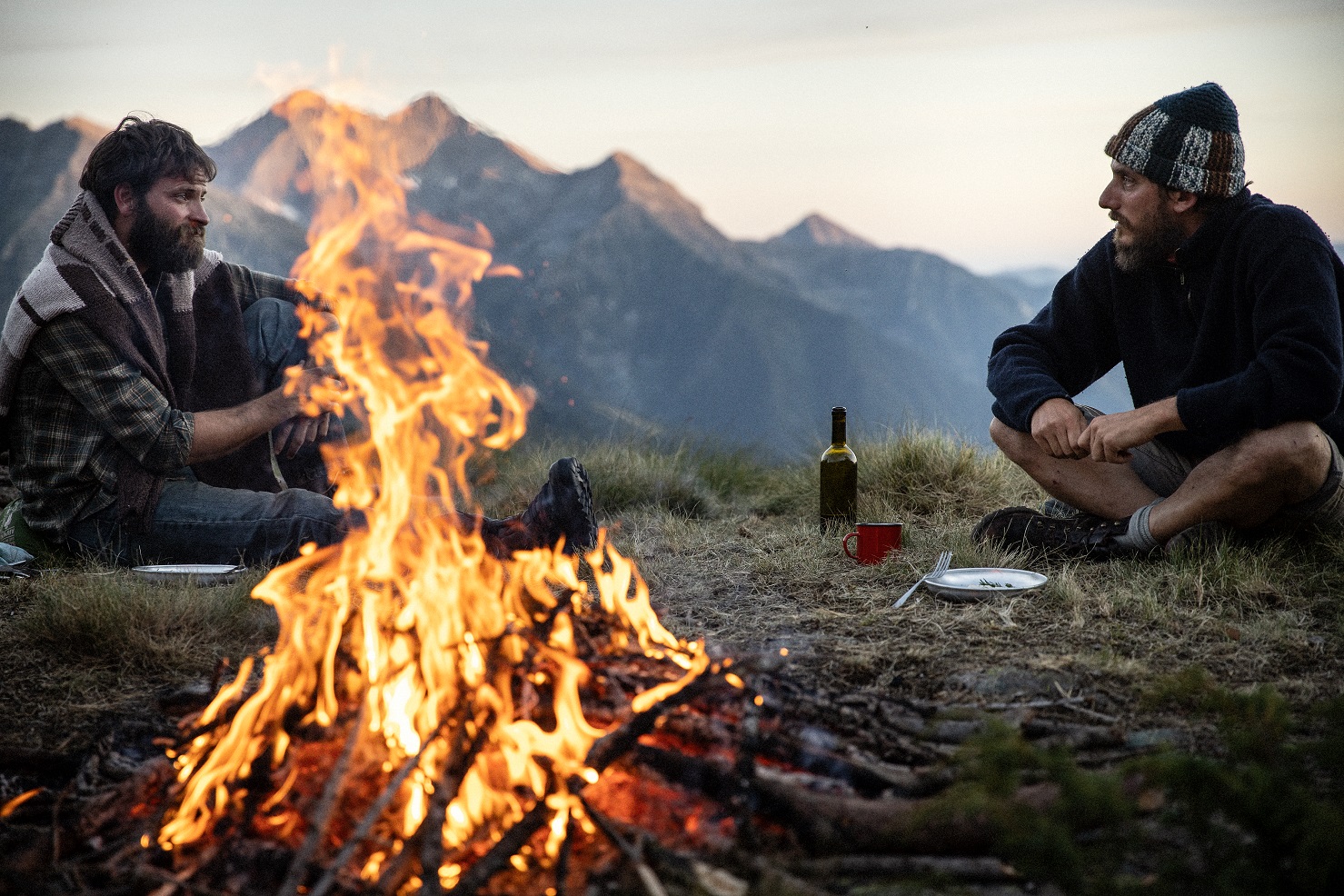Friendship, family, love, quarrels and reconciliation drive The Eight Mountains (Le otto montagne), director Felix van Groeningen’s seventh feature film.
These themes also drove him to make the movie with his life partner Charlotte Vandermeersch. Indeed, as van Groeningen admits, writing the script with Vandermeersch was effectively a form of couples therapy. “We were going through a bit of a crisis as a couple,” the 44-year-old says in a frank reflection about a turbulent period in their relationship. “We had been together for 13 years but maybe lost each other a little along the way.”
Van Groeningen is one of the most celebrated names in Belgian cinema, his filmmaking flair earning him an international profile, including recognition by the Oscars and Cannes. But that did not prevent him and Vandermeersch, 38, from mundane relationship issues, exacerbated by the coronavirus pandemic. “We were also new parents and doing so many things. It was incredible actually to have this moment where the whole world stopped, and we could just focus on this thing we were working on, and on each other.”
The pair are talking to me from their kitchen as Vandermeersch cradles their sick toddler. It’s clear the Ghent couple are fitting the interview into a busy morning and van Groeningen has to occasionally disappear to take care of something else. Still, they are thoughtful about their responses and generous with their time. They ping-pong incoming questions off each other naturally, as they had to do for months on the film set.
The Eight Mountains (Le otto montagne), an adaptation of the best-selling book of the same name by Italian author Paolo Cognetti, won the Jury Prize at the Cannes Film Festival this year. It is the story of an intense summertime friendship between two boys in the Italian Alps, unexpectedly rekindled many years later, bringing peace to their troubled souls. And the story of the making of the film is ironically similar.

Felix van Groeningen and Charlotte Vandermeersch at the Cannes Film Festival
While The Eight Mountains is van Groeningen’s seventh feature, it’s the first for which he shares directing credit. “Charlotte and I had been looking for something to write together for a while,” he says, director of modern Belgian classics like De helaasheid der dingen (The Misfortunates) and the Oscar-nominated The Broken Circle Breakdown. “She had also read the book and really understood why I wanted to do it.”
Second look
It wasn’t always so. The first time someone brought the book to van Groeningen’s attention as a potential project, he discarded the idea, along with the book, without even finishing it. “I thought, ‘It didn’t make sense. Me and this Italian story? I’m never going to turn this into a movie.’”
About a year later, the producers who had bought the film rights to the novel queried Groeningen again. He took a second look. “I started reading and fell in love with it.” Then the pandemic hit, and he and Vandermeersch were – like everyone else – stuck at home together with little work to do.
They started writing. “Normally you have a lot of distractions,” says Vandermeersch. “You go out, you see friends, whatever. This was really focused. We could dig in deep, also with each other.”
They found they could reveal truths about themselves by talking about their script’s characters. “We could share our vision on how to deal with the death of a father, for instance,” Vandermeersch explains. “How to deal with it when your friends are far away, how to deal with betrayal, how to be a good son – or not – what is that even? We talked about all these issues through this filter of the movie.”
So while some couples were splitting up during a crisis that made them spend every waking moment together, the Ghent couple experienced the opposite. They finished the first draft of the script in just three months. Nor did Van Groeningen want the collaboration to stop. Originally intended for him to direct alone, he asked Vandermeersch if she would co-direct.

© Christophe De Muynck
“It was exciting but scary,” she says. “But everything that’s scary is exciting.” It was the first time directing for the actor, known for roles in De Premier (The Prime Minister), Turquaze and Adoration, as well as in van Groeningen movies Dagen zonder lief (With Friends Like These) and Belgica. “I just thought it was a very inspiring book because it has so many layers,” she continues. “It’s not just one story, it’s about finding your way in life, about trying to reconnect to nature, what is nature, accepting death, how to say goodbye, how to forgive yourself and others. It’s about life itself.”
Trying to fit all of that into a film is no easy task, made more complicated by the narration of the book, a running meditation in the protagonist’s head. “During the writing, I realised how good the script was becoming because of her and because of the collaboration,” van Groeningen says. “Which had to do with her gaze and her sensibility and her clear view of what she thought was working from the book and what was missing from the movie.”
Van Groeningen had also never co-directed before, so it was a leap of faith for both of them. The Jury Prize and the glowing reviews that followed are proof that the collaboration paid off. “Charlotte had an amazing compass, like, ‘This is where we need to go. And we cannot lose this,’” explains van Groeningen. “And that is really important for a writer-director. It made this film what it is.”
Considering the inherent challenges of the project, it helped to have two compasses. The pair wrote the script in Dutch, then had it translated into Italian. In the meantime, they both studied Italian so they could direct Italian actors. It later appeared that the translation was inadequate, so the original script was translated into English and then into Italian again.
Alpine shoot
They then moved to the rugged Italian Alps to spend seven months shooting the film. They not only wanted to make the movie where it is set in the novel, they also needed to catch all the seasons, which is crucial to the plot.
“I wouldn’t have done it 10 years ago,” Van Groeningen admits. But in 2018, he made his first Hollywood feature, Beautiful Boy with Steve Carell and Timothée Chalamet, and that taught him how to make a movie in another language and country, with a largely unfamiliar crew and actors.
“When I fall for something, I’m going to honour the source material,” he says. “We fell for the entire thing, and the authenticity. It’s inspired by real people, real places. We ended up shooting it very close to where the author lives and the places that inspired him.” The author himself showed them around on their first trip to the Aosta Valley of north-western Italy.
“Sometimes I would panic,” van Groeningen says, laughing. “There are also different accents in the story, and we were like, we barely speak the language, how are we going to deal with that? But you’ve got people who help out, and the actors were amazing with it.”
The pair are big fans of Italy and have been many times. “We were always frustrated by not speaking the language,” Vandermeersch explains. “It was also kind of a dream come true to study it. So it didn’t feel like an extra difficulty.”
While collaborating with foreign production companies, crews and actors always adds extra challenges to moviemaking, Vandermeersch counts their blessings. “We understood each other very well. All the heads of departments were talented, hard-working people. It was really a match between the Belgian team and the Italian team. I felt like that was because of being European. We’ve been living in a unified Europe for such a long time, appreciating each other and trying to help each other out. Although Europe has a lot of problems, something like this is also possible because of the existence of Europe. I really think that’s wonderful.”
More Felix van Groeningen
Before The Eight Mountains, Felix van Groeningen made six feature films. The Misfortunates and The Broken Circle Breakdown are widely seen as two of the finest examples of contemporary Belgian cinema.
- Steve + Sky Van Groeningen’s quirky first film, in 2004, sees the titular characters – a dodgy ex-con and a punky prostitute – falling in love but refusing to admit it.
- Dagen zonder lief (With Friends Like These) His second, in 2007, is about how the return of a friend shakes up the lives of 20-somethings.
- De helaasheid der dingen (The Misfortunates) The movie that made Van Groeningen’s name internationally in 2009 is an adaptation of a best-selling Belgian novel based on the author’s life growing up in a family of impoverished alcoholics.
- The Broken Circle Breakdown Van Groeningen earned a best foreign-language Oscar nomination for his 2012 adaptation of a popular local play about bluegrass singers struggling with tragedy (it lost to Paolo Sorrentino’s The Great Beauty).
- Belgica The holy grail of films among Belgium’s nightlife crowd, Belgica, from 2016, is the story of two brothers – one shy and responsible, the other the drug-snorting life of the party – trying to avoid conflict while running a club.
- Beautiful Boy Hollywood had begun to take notice and in 2018 Van Groeningen was tapped to direct this adaptation of the best-selling book by journalist David Sheff about his struggle to get his son off methamphetamines.


